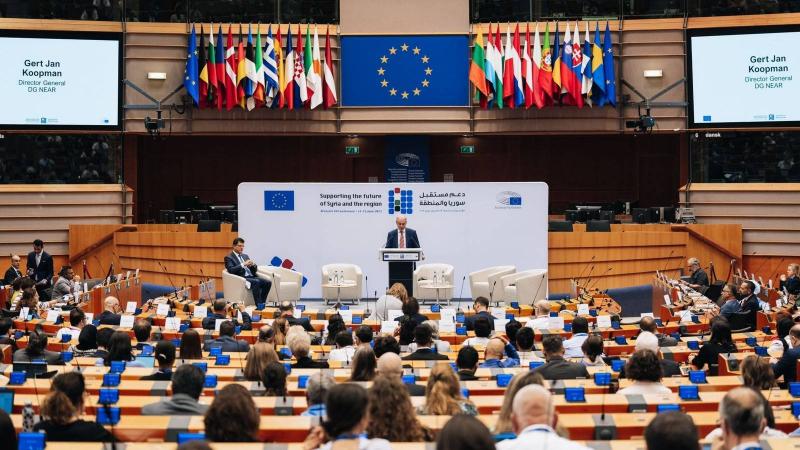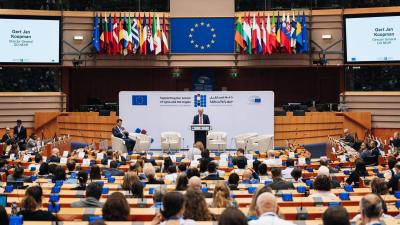The Belgian capital, Brussels, witnessed the conference "Supporting the Future of Syria and the Region," which addressed the situation in Syria and support for Syrians both domestically and abroad, a central theme throughout previous sessions of the conference. However, the bitter truth is that the train of political resolution has not departed from its initial station, let alone reached results that could put an end to the Syrian tragedy and restore this country to the regional map, as well as the international map, in addition to alleviating various crises, including the Syrian refugee crisis. The call to implement Resolution 2254 has become a necessary refrain in every forum and conference related to the Syrian issue, reminiscent of the call for a two-state solution concerning the Israeli-Palestinian conflict, yet without serious efforts to achieve the implementation of that resolution, particularly the formation of a transitional governing body as stipulated in the resolution and the preparation of conditions for the safe return of Syrian refugees.
#### Outcomes of the Astana Conference
It is clear that the Astana Conference, and the decisions that emerged from it several years ago, have institutionalized the division of Syria based on areas of influence for regional and international parties, each seeking to seize its share of the Syrian pie at the expense of the state and the people in this country. This division has become a reality over the past years that must be dealt with to stand by the Syrian people and mitigate the losses affecting the entity of the Syrian state and confront the dangers produced by the chaos and state fragility. Thus, the Arab League's decision to grant Syria its seat back and re-engage with the Syrian government was made, but the Arab states placed this within a broader plan designed to mark the starting point for an attempt to exit this crisis. However, the regional and international parties present in the Syrian arena have not responded to the Arab initiative halfway, and thus the political negotiations between the opposition and the government have not advanced an inch, and efforts to mitigate the risks of drug production and trafficking have not coalesced, leaving Syria a breeding ground for militias and groups that have become a burden on the Syrian state, including those that claim to exist for its protection, in addition to other factions that have turned Syria into cantons with warlords across the Syrian map.
#### The American Stance
Perhaps the strange aspect is the American position, which holds many cards in the Syrian arena; on one hand, it opposes Syria's return to the Arab League again, while on the other hand, it does not do much to extricate Syria from the predicament it is in, nor does it advocate for the practical implementation of UN Resolution 2254, thus cornering Syria into a state of increasing fragmentation, economic despair, and extreme poverty approaching famine. The situation was exacerbated by the war in Ukraine and the conflict in Gaza, which overshadowed the Syrian crisis and pushed it to the back of international concerns. The repercussions of the Syrian conflict cannot be addressed or mitigated; on the contrary, these repercussions will only worsen as long as the political and economic situation remains as it is. Serious work to address the refugee crisis and the economic crisis faced by the Syrian citizen domestically can only occur through a long-awaited political solution.




